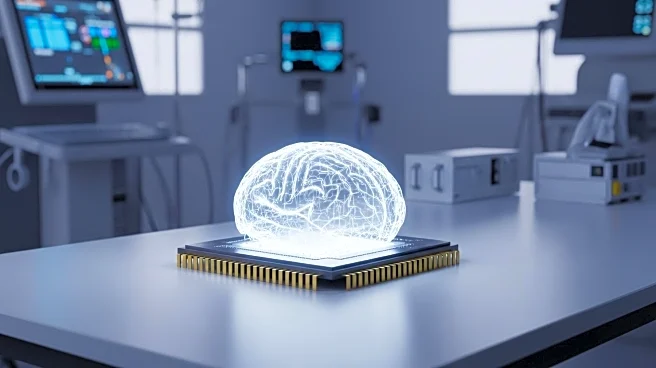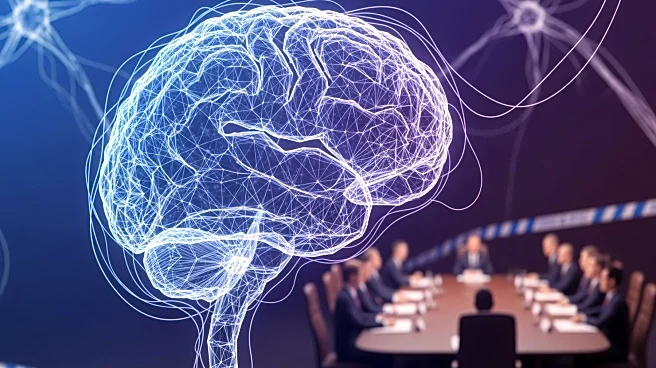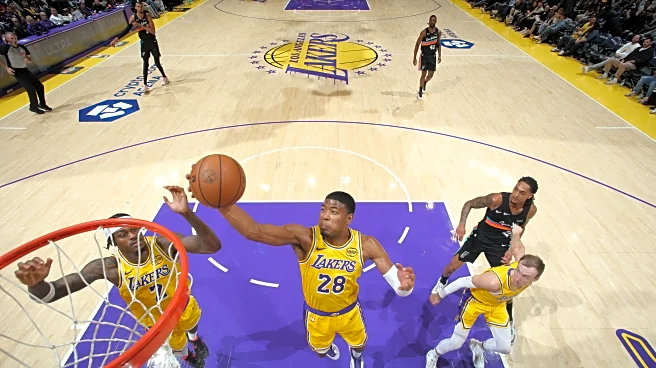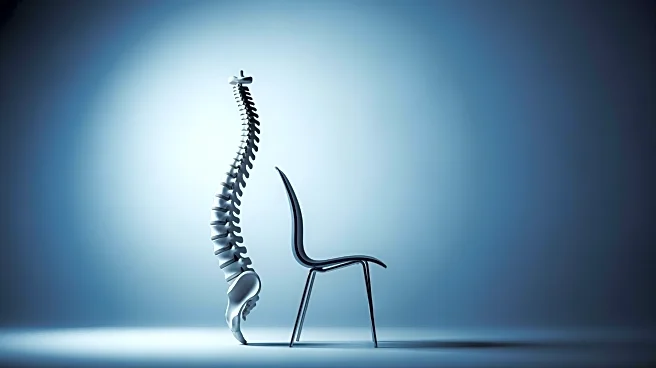What is the story about?
What's Happening?
Noland Arbaugh, a 29-year-old man paralyzed from the shoulders down due to a swimming accident, became the first person to receive Neuralink's brain-computer interface. This device, implanted during a two-hour robotic surgery, allows him to control digital devices using his thoughts. The chip, which is wireless and requires charging every few hours, has enabled Arbaugh to play video games, study neuroscience, and operate smart home devices. His experience highlights the potential of technology to restore autonomy and improve quality of life for individuals with disabilities.
Why It's Important?
Neuralink's brain-computer interface represents a significant advancement in assistive technology, offering new possibilities for individuals with paralysis and other disabilities. By translating neural signals into digital commands, the device provides a level of independence previously unattainable. This development could lead to broader applications, such as controlling prosthetic limbs or enabling communication for those unable to speak. The success of Arbaugh's implant underscores the potential for technology to transform lives and challenges existing perceptions of disability.
What's Next?
Neuralink aims to refine its technology to improve battery life and signal fidelity, potentially expanding its use to a wider range of applications. As the technology evolves, it may offer new ways for individuals to interact with the world, enhancing cognitive abilities and communication. The journey of early adopters like Arbaugh will continue to inform the development and ethical considerations of brain-computer interfaces.
Beyond the Headlines
Arbaugh's story raises philosophical questions about the integration of technology with human identity and autonomy. As brain-computer interfaces become more prevalent, society will need to address ethical concerns regarding privacy, consent, and the potential for misuse. The emotional and psychological impact on users also warrants attention, as pioneers in this field navigate the challenges of being early adopters.

















